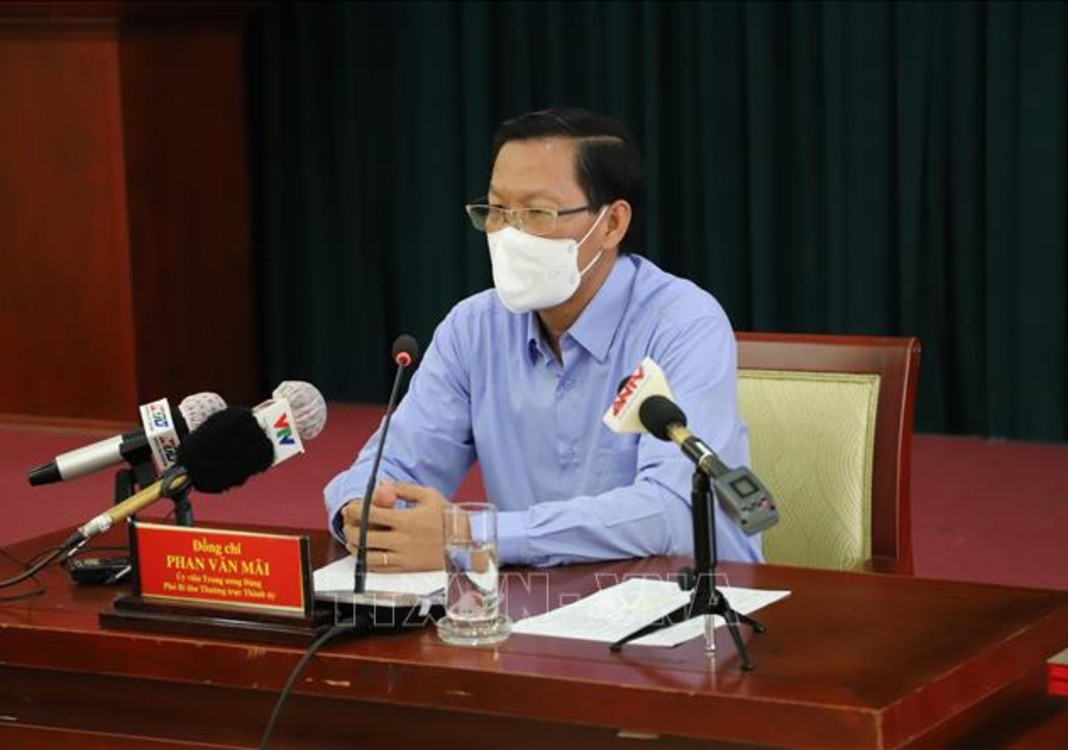HCMC – The HCMC government will evaluate the city’s Covid-19 situation on August 1 and may extend stringent social distancing following Directive No. 12 by one or two weeks, Phan Van Mai, standing deputy secretary of the HCMC Party Committee, said at a meeting this afternoon, July 28.
The HCMC Party Committee on July 22 issued Directive No. 12 tightening its anti-Covid-19 measures in line with the prime minister’s Directive No. 16 in the context of the Covid-19 pandemic continuing to develop complicatedly in the city.
The new directive requires the enhancement of inspection and supervision of compliance with anti-virus measures.
Accordingly, residents in areas under lockdown must distance themselves from others. They can only leave their homes for medical emergencies or food and other essential goods twice a week at supermarkets and markets inside the areas, using coupons issued by the local authorities.
In some extremely-high-risk areas, residents are banned from leaving their homes and the local authorities will deliver food and other products to them instead.
Those undergoing quarantine must follow regulations and not leave their rooms or contact others.
Members of households whose family members are asymptomatic coronavirus carriers and direct contacts of Covid-19 cases undergoing home quarantine must not leave their homes either.
The city has also suspended non-urgent production and business activities as well as construction sites. Banks and stock market facilities are allowed to operate at an adequate level to meet the demand. Branches and transaction offices should ask their employees to work in shifts.
Only businesses in essential sectors are allowed to operate, including healthcare, pharmaceuticals, food, electricity, water and gas supply and the transport of essential goods.
Moreover, only businesses that can arrange accommodation and meals at work for their staff are allowed to remain operational. Employers must arrange vehicles to transport their workers between their concentrated accommodation facilities and their factories.
Traditional wet markets must reduce their capacity to 30%. Only traders of essential commodities and food are allowed but they must take turns to do business at the markets.
Additionally, State agencies must arrange for employees to work in shifts at their headquarters.
Only goods transporting vehicles provided with QR codes, those of State agencies and the frontline forces and those transporting residents in the city to their hometowns are allowed to pass through checkpoints.









